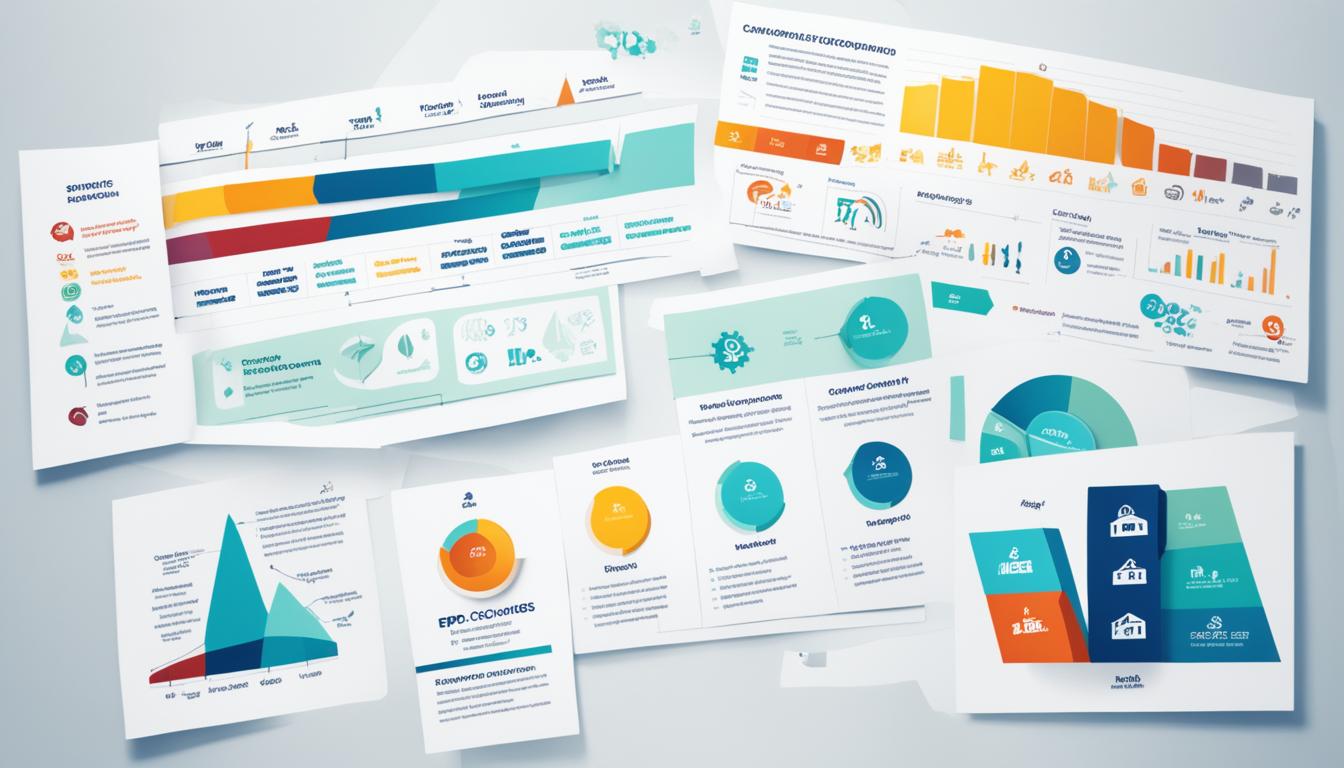An opinion leader is an individual who has expertise and authority in a specific industry, and their audience trusts their opinions. They play a crucial role in influencing consumer decisions and shaping brand perception. Opinion leaders act as intermediaries between marketers and their target audiences, providing information, summarizing product pros and cons, and offering personal experiences to help consumers make purchase decisions.
Characteristics of opinion leaders include knowledge and expertise in their niche, charisma to attract and influence others, influence over their audience, professionalism in handling public relations, and a strong social media presence.
Key Takeaways:
- An opinion leader is an individual with expertise and authority in a specific industry
- They play a crucial role in influencing consumer decisions and shaping brand perception
- Opinion leaders act as intermediaries between marketers and their target audiences, providing information and personal experiences
- Characteristics of opinion leaders include knowledge, charisma, influence, professionalism, and a strong social media presence
- Opinion leaders are trusted by their audience and can help businesses reach a wider audience and increase sales
The Role of an Opinion Leader in Marketing
Opinion leaders play a crucial role in marketing by acting as intermediaries between marketers and consumers. They provide valuable insights, recommendations, and personal experiences to help consumers make informed decisions. Opinion leaders have the ability to influence consumer opinions, shape brand perception, and build trust and credibility.
Consumer opinions carry significant weight in the purchasing process. When an opinion leader shares their positive experience with a product or service, it can influence others to consider purchasing it as well. This word-of-mouth marketing is a powerful tool that can drive sales and brand visibility.
Product recommendations from opinion leaders hold significant value. Consumers trust the opinions of those they perceive as experts in a particular industry. When an opinion leader endorses a product, it can enhance the product’s credibility and increase the likelihood of purchase.
Brand perception is greatly influenced by opinion leaders. Their association with a brand can positively impact how it is perceived by consumers. When opinion leaders align themselves with a brand, it can enhance the brand’s reputation and attract more customers.
Trust and credibility are essential in marketing. Opinion leaders have built a sense of trust with their audience over time. Consumers rely on and believe in their opinions, making them a reliable source of information. When opinion leaders endorse a product or service, their audience is more likely to trust its quality and credibility.
Thought leadership is another aspect of an opinion leader’s role in marketing. Opinion leaders are seen as knowledgeable and influential figures in their respective industries. Their expertise and insights contribute to shaping industry trends and inspire others to follow their lead.
In conclusion, opinion leaders play a crucial role in marketing by influencing consumer opinions, shaping brand perception, and building trust and credibility. Their insights, recommendations, and personal experiences have a significant impact on consumer decision-making. Marketers can leverage the power of opinion leaders by collaborating with them to reach a wider audience and enhance brand visibility.
Characteristics of Opinion Leaders
Opinion leaders possess certain characteristics that contribute to their popularity, trustworthiness, and recognition among their audience. These characteristics enable them to effectively influence consumer behavior and shape brand perception. Let’s explore the key characteristics that set opinion leaders apart:
Expertise and Knowledge
Opinion leaders demonstrate a deep understanding of the products or services they endorse. They invest time and effort in exploring and comprehending the features, benefits, and limitations of the offerings. This comprehensive knowledge allows them to provide informed opinions and recommendations to their audience.
Charisma and Influence
Opinion leaders possess a unique charm that captivates and influences others. Their charisma enables them to attract and retain the attention of their audience. Through their persuasive communication skills, they effectively convey their opinions and recommendations, driving engagement and prompting action.
Public Speaking Skills
Public speaking plays a vital role in an opinion leader’s ability to engage and connect with their audience. They possess exceptional communication skills that allow them to articulate their thoughts, ideas, and recommendations in a clear, concise, and compelling manner. Their ability to captivate and inspire through public speaking enhances their influence.
Social Media Presence
A strong social media presence is essential for opinion leaders to reach and engage with their audience. They utilize popular platforms such as Instagram, Facebook, and YouTube to share valuable content, interact with their followers, and provide updates on their endorsed products and services. Their active presence on social media facilitates ongoing communication and nurtures a loyal community.
Thought Leadership
Opinion leaders establish themselves as thought leaders within their niche. They actively contribute to industry conversations, providing valuable insights and perspectives on relevant topics. By consistently delivering high-quality, thought-provoking content, they position themselves as reliable sources of information, further strengthening their authority and influence.
These characteristics collectively contribute to an opinion leader’s ability to engage, influence, and shape the opinions of their audience. The infographic below highlights the key characteristics of opinion leaders:
| Characteristic | Description |
|---|---|
| Expertise and Knowledge | Deep understanding of endorsed products/services |
| Charisma and Influence | Ability to captivate and persuade |
| Public Speaking Skills | Effective communication and articulation |
| Social Media Presence | Active engagement on popular platforms |
| Thought Leadership | Establishing authority and contributing insights |
Opinion leaders possess a diverse set of skills and attributes that enable them to exert influence, build trust, and shape brand perception. Their expertise, charisma, public speaking skills, social media presence, and thought leadership collectively contribute to their effectiveness as opinion leaders.
Identifying Key Opinion Leaders
In the world of marketing, identifying key opinion leaders (KOLs) is crucial for successful brand promotion and consumer engagement. Opinion leaders can be classified into two main categories: traditional and digital.
Traditional Opinion Leaders:
Traditional opinion leaders are industry experts who have established their authority and credibility through years of experience. They are often recognized as leading figures in their respective fields and are highly regarded by their peers. Marketers can identify traditional opinion leaders by looking for speakers at conferences and events in relevant industries or by researching and identifying top experts in their fields.
Digital Opinion Leaders:
Digital opinion leaders, on the other hand, have gained influence and recognition primarily through their online presence and engagement with their audiences. These individuals leverage various digital platforms, such as social media and blogs, to share their expertise and connect with their followers. To identify digital opinion leaders, marketers should focus on both qualitative and quantitative metrics.
Qualitative Metrics:
Qualitative metrics assess the quality and relevance of the content shared by opinion leaders. This includes evaluating the depth of their knowledge, the accuracy of their information, and the unique insights they provide to their audience. Engaging and informative content can help establish the expertise and thought leadership of the opinion leader.
Quantitative Metrics:
Quantitative metrics, on the other hand, measure the reach and impact of opinion leaders. These metrics include the number of followers, mentions, shares, and posting frequency. A large and engaged following, combined with consistent and frequent interactions, indicates a strong digital opinion leader.
By analyzing both qualitative and quantitative metrics, marketers can identify key opinion leaders in their industries. Collaborating with these opinion leaders can help businesses reach a wider audience, enhance brand awareness, and tap into the trust and credibility established by these influential figures.
Through strategic partnerships with traditional and digital opinion leaders, marketers can leverage their influence to amplify their brand messages and establish a strong connection with their target audience.
Becoming an Opinion Leader
Becoming an opinion leader in your industry requires a combination of expertise, skills, and strategic efforts. By following these key steps, you can establish yourself as a trusted authority and gain a loyal following:
- Develop Expertise and Skills: To become an opinion leader, you need to have in-depth knowledge and expertise in your chosen industry. Continuously invest in your skills through ongoing learning and professional development.
- Industry Specialization: Focus on one niche within your industry and become a specialist in that area. This specialization will give you a unique selling proposition and attract a targeted audience.
- Create Compelling Content: Utilize social media platforms such as Instagram, Facebook, and YouTube to share valuable content with your audience. Craft engaging posts, videos, and articles that showcase your expertise and provide valuable insights.
- Maintain Consistency: Consistency is key to building credibility and trust. Regularly publish content and engage with your audience to demonstrate your commitment to your niche and establish yourself as a reliable source of information.
- Collaborate with Influencers: Collaborate with established opinion leaders and influencers in your industry. Their endorsement and collaboration can help you gain exposure, reach a wider audience, and learn from their experiences.
- Create Unique Content: Differentiate yourself from others by providing unique and thought-provoking content. Share your own expert opinions, insights, and experiences to establish a reputation for delivering valuable and distinctive information.
By following these guidelines, you can start your journey towards becoming an influential opinion leader in your industry, gaining recognition, trust, and a dedicated following.
Examples of Opinion Leaders
Opinion leaders are individuals who have successfully gained trust and influence in their respective industries. These leaders have established themselves as authorities by sharing valuable insights and experiences with their audience. Here are some notable examples of opinion leaders:
Carson Tate
Carson Tate is a renowned business and life coach who specializes in productivity tips. With her expertise in time management and work-life balance, Carson has become an opinion leader in the professional development field. She shares practical strategies and techniques to help individuals enhance their productivity and achieve success.
Arianna Huffington
Arianna Huffington is an accomplished author and businesswoman who has made her mark in digital media and wellness. As the co-founder of The Huffington Post, Arianna has positioned herself as a thought leader in the industry. She shares valuable insights on topics such as well-being, mindfulness, and success, empowering her audience to lead healthier and more fulfilling lives.
Gary Vaynerchuk
Gary Vaynerchuk is a highly influential entrepreneur and digital marketing expert. Through his dynamic and authentic communication style, Gary has captured the attention of millions. He has successfully built an engaged community by sharing his knowledge and experiences in entrepreneurship, branding, and social media marketing.
Neil Patel
Neil Patel is a well-known digital marketer and SEO specialist. With his extensive expertise in online marketing, Neil has become an opinion leader in the industry. He is recognized for his ability to simplify complex marketing concepts and provide actionable strategies for businesses to improve their online presence and drive results.
Kim Garst
Kim Garst is a social media strategist and personal branding expert who has gained recognition as an opinion leader. With her deep understanding of social media platforms and trends, Kim helps individuals and businesses leverage the power of social media to build their online presence and connect with their target audience.
These opinion leaders exemplify the impact that expertise, authenticity, and valuable insights can have on building influence and trust in their respective industries.
| Name | Industry | Expertise |
|---|---|---|
| Carson Tate | Business and Coaching | Productivity Tips |
| Arianna Huffington | Digital Media and Wellness | Thought Leadership |
| Gary Vaynerchuk | Entrepreneurship and Digital Marketing | Social Media Marketing |
| Neil Patel | Digital Marketing and SEO | Online Marketing Strategies |
| Kim Garst | Social Media Strategy and Personal Branding | Social Media Marketing |
Importance of Opinion Leaders in Marketing
Opinion leaders play a crucial role in marketing by influencing consumer behavior, building brand awareness, enhancing credibility, and increasing sales. Their ability to shape brand perception and leverage trust is invaluable in today’s competitive market.
Collaborating with opinion leaders allows businesses to reach a wider audience and tap into their established credibility and influence. By partnering with opinion leaders who align with their brand values and target audience, companies can enhance brand awareness and establish a positive brand image.
The endorsements and recommendations of opinion leaders carry significant weight in the eyes of consumers. With their trusted expertise and authority, opinion leaders have the power to sway consumer opinions and decisions. Consumers are more likely to trust and engage with a brand when it is recommended or endorsed by a respected opinion leader.
Moreover, opinion leaders can help businesses enhance their credibility. By associating with opinion leaders who are considered experts in their fields, brands can reinforce their industry expertise and gain credibility among their target audience. This credibility can translate into higher customer trust and a stronger brand reputation.
Influencing consumer behavior is a key outcome of opinion leader collaborations. When opinion leaders share positive experiences, insights, and recommendations about a product or service, they can persuade their followers to make purchase decisions. Their influence over consumer behavior can lead to increased sales and business growth.
Leveraging trust is another significant advantage of working with opinion leaders. Consumers are more likely to trust a brand when it is associated with a trusted opinion leader. By leveraging the trust that opinion leaders have built with their followers, businesses can establish a genuine connection with their target audience and foster long-term customer relationships.
Benefits of Collaborating with Opinion Leaders:
- Influencing consumer behavior and purchase decisions
- Building brand awareness and brand image
- Enhancing credibility and brand reputation
- Increasing sales and business growth
- Leveraging the trust and influence of opinion leaders
In conclusion, opinion leaders are instrumental in marketing due to their significant impact on consumer behavior, brand awareness, credibility, and sales. Collaborating with opinion leaders can help businesses reach a wider audience, establish trust, and ultimately drive success in the competitive marketplace.
The Future of Opinion Leaders in Marketing
The future of opinion leaders in marketing is closely tied to the evolving landscape of influencer marketing. As brands continue to leverage the power of influencers to connect with their target audiences, a shift towards niche micro-influencers is becoming evident. These individuals offer a more specialized and authentic approach to reaching specific audiences, allowing brands to establish deeper connections and build trust.
One of the key factors shaping the future of opinion leaders is the emphasis on authenticity. With consumers becoming more discerning and wary of traditional advertising tactics, brands are realizing the importance of working with opinion leaders who genuinely believe in their products or services. Authenticity not only establishes a sense of trust but also helps brands create a strong brand identity and differentiate themselves in a crowded marketplace.
Personalization is another significant aspect that will shape the role of opinion leaders in the future. Brands are increasingly seeking influencers who can tailor their messaging to specific target audience segments. This approach allows for a more personalized and targeted influencer campaign to resonate with consumers on a deeper level, ultimately driving higher engagement and conversion rates.
To effectively implement personalization and authenticity, brands are adopting more targeted influencer campaigns. These campaigns involve carefully selecting opinion leaders whose values, interests, and audience align with the brand’s target market. By working with influencers who have a natural affinity for the brand, marketers can ensure that the messaging remains genuine and resonates with consumers in a meaningful way.
With these shifts in influencer marketing, opinion leaders will continue to play a crucial role in shaping consumer behavior and influencing brand perception. Their ability to authentically connect with their audience, provide personalized recommendations, and endorse products will remain invaluable to brands looking to establish trust, credibility, and ultimately drive business results.
Evolving Influencer Marketing Trends
| Trend | Description |
|---|---|
| Niche Micro-influencers | Focus on working with influencers who have a smaller but highly engaged audience within a specific niche. |
| Authenticity | Emphasis on working with influencers who genuinely believe and advocate for the brand’s products or services. |
| Personalization | Customizing influencer campaigns to align with the interests, values, and preferences of the target audience. |
| Targeted Influencer Campaigns | Selecting influencers whose values and audience align with the brand’s target market for more impactful campaigns. |
Conclusion
Opinion leaders are vital players in the world of marketing. With their expertise, authority, and influence, they have the power to shape consumer behavior, build brand perception, and establish trust and credibility. Collaborating with opinion leaders through strategic partnerships and endorsements can significantly benefit businesses. It allows them to expand their reach to a wider audience, enhance brand awareness, and ultimately drive sales. By leveraging the strong social media presence of opinion leaders, brands can connect with their target audience and share valuable insights.
As the marketing landscape evolves, opinion leaders will continue to be a key component in successful marketing campaigns. Through their thought leadership, opinion leaders influence consumer opinions, guide purchasing decisions, and foster brand loyalty. Their impact can truly make a difference for businesses aiming to establish brand authority and stand out in a crowded marketplace.
Building brand perception and fostering trust requires strategic collaborations with opinion leaders. By recognizing the value and influence they bring, businesses can tap into the power of opinion leaders to help shape the narrative around their brand. As digital platforms continue to grow, the importance of opinion leaders in marketing will only increase. Those who understand the significance of opinion leaders and invest in strategic collaborations will be well-positioned to succeed in the future of marketing.




